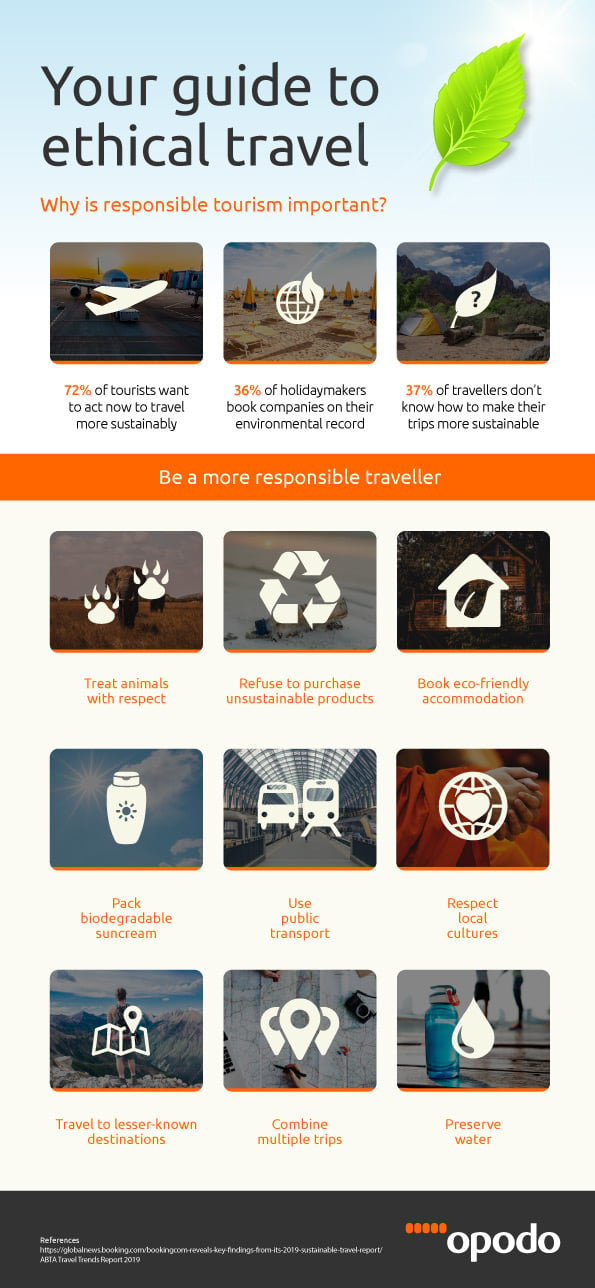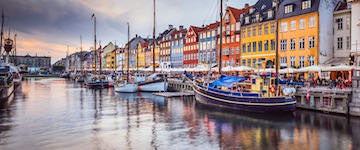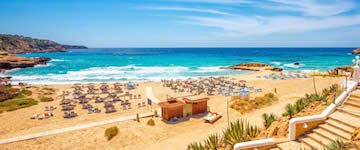Ethical travelling: What is sustainable tourism?
Ethical travel doesn't just cover one topic, but rather incorporates a number of elements that come together to ensure that you as a traveller are being a responsible tourist. Sustainable tourism aims to reduce the negative impacts on a destination that can occur from increased numbers of visitors.
They can range from overtourism and carbon emissions to the mistreatment of people or animals in a tourist hotspot. Each traveller can do their bit to make a difference and ensure any negative impact is minimal to none.
Why is responsible travel important?
More and more people are travelling, which means the impact of tourism on beautiful destinations has the potential to destroy what makes them so special in the first place. It's vital that each individual takes responsibility for their own actions by following responsible travel guidelines to ensure the world's most beautiful places stay that way for generations to come.
Responsible tourism guidelines
In order to ensure you are not having a negative impact on destinations due to your holidays, you should develop your own code of ethics as a traveller.
- Treat animals with respect in their natural habitats.
- Think about buying sustainable products.
- Only use accommodation with sound environmental policies.
- Protect the natural world by using biodegradable sunscreen.
- Use public transport where possible.
- Adapt your behaviour to respect local cultures.
- Swap your destination to prevent overtourism.
- Take fewer trips that combine more than one destination.
- Cut your water usage and shower just once a day in hot climates.
Sustainable tourism in top destinations
Treat animals with respect
Whether you are taking a safari in Africa or declining an elephant ride in South East Asia, always think about the impact your actions could have on animals. There are many ways to enjoy wild animals in their natural habitats without causing harm and these can add to a sustainable tourism model to the local economy, benefitting the community.
Think about your purchases
Refusing to purchase products that have been made by destroying the natural habitat, such as not buying sponges in Ibiza, will help to prevent the practice. Ask questions about where souvenirs have come from, what they're made of and whether they're being sold for a fair price to ensure your tourist money is going to support practice enterprises.
Stay the right way
Finding out if the accommodation you plan to book in destinations such as Amsterdam employs local people, has sound environmental policies and uses local produce will help you work with the destination to promote sustainable tourism.
Protect the environment
Packing suncream that will not damage precious coral reefs or local habitats when you go swimming is another way to prevent destruction of the natural world.
Travel by bus, train or tram
Using public transport whenever possible, especially in cities like Copenhagen where it is reliable and easily accessible, cuts down carbon emissions.
Adapt your behaviour
Respecting local cultures and doing your research before travelling is important, as some places like Istanbul can seem very westernised, but still have religious practices that should be observed.
Swap your destination
To avoid exacerbating destinations where overtourism is a problem, think about going to lesser known places in the same region instead.
Take fewer, longer trips
Combine multiple trips that would each include their own flights into one trip. For example a holiday to Vienna could also take in Budapest or Munich with travel overland between the cities.
Cut your water usage
It’s important to preserve water wherever possible, as the recent shortages in Johannesburg have highlighted. Only shower once a day even in hot climates.






